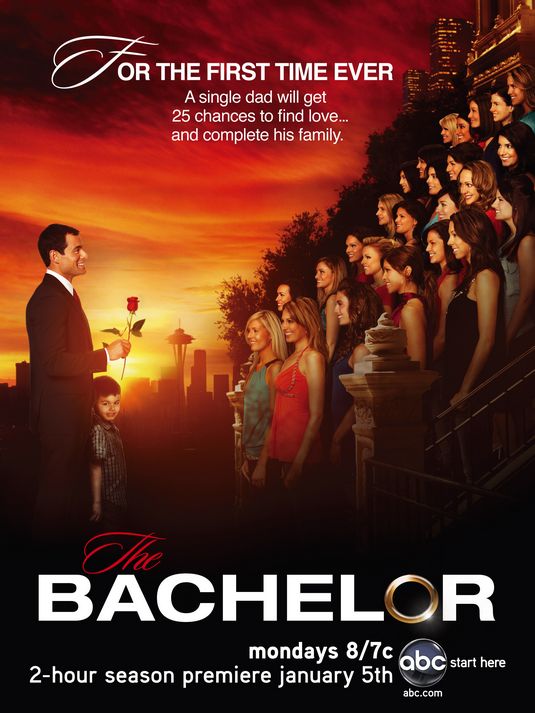
The Bachelor Franchise, and all of its respective spin-offs (The Bachelorette, Bachelor in Paradise, and once long ago, The Bachelor Pad) are selling you a delicious disillusion that you are greedily eating up.
But don’t worry, I have a seat at the table too.
For those who are not familiar with the over saturated “reality” phenomenon, the series centers around a genetically perfect, often white, heteronormative, typically Republican, Bachelor or Bachelorette, on their quest to find love.
It’s completely alright though! Because the lead also comes with “flaws,” the likes of which include being “too normal,” fears of being unlovable, and typically bearing the scars of recent heartbreak.
Over the course of three months, 30 potential life partners dwindle down to a single fiancé and the promise of eternal commitment at an all-expenses paid wedding.
Of course, on paper it reads as a totally undesirable cliché that no realistic human being could ever fantasize about.
But trust me it works — I’ve been invested since I was 12.
If the show could boil down to one reason for its massive success, it would be its simple ability to prey on a fundamental human weakness.
The desire to love, and to be loved.
This vulnerability breeds human moments where someone tearfully ponders why they’re unable to find love, relishes in the impulsive decision to never date again, nervously articulates their affections, or cheekily fumbles through awkward interactions.
Truthfully, watching the pockets of raw, unscripted woe, glee, jealously, and infatuation is so delightfully familiar that it keeps me invested until the end.
I find it incredible how entertaining it is to watch romantic situations build up to messy outcomes in a rom-com simulation that serves as brain popcorn on a Monday night.
It’s like a car crash you can’t look away from!
The Bachelor has many faults, one of which is a notable diversity problem.
In one episode, they reveal that the show carefully curates their contestants to add spoonfuls of just enough diversity to resonate with their growing audience, even if it’s simply “close enough.”
The complicated intricacies of representation in the franchise run so deep that it could account for a totally separate article.
There’s just no way to summarize it into a couple sentences.
Also, if you didn’t know by now, all the cheesy romance that feels attainable, and yet so far away, is produced with maniacal levels of evil genius.
Similar to the show Big Brother, the contestants are being filmed 24/7 and have signed ridiculously lengthy contracts filled with legal jargon (I’ve read them!) that essentially lay their reputations and autonomy in the hands of the editors, resulting in the “villain edit” that some unlucky contestants get every season.
I know what you’re thinking.
What about the genuinely horrible people that go on the show and act in ways that are definitely not produced?
Let’s not forget that contestants are subjected to pretty lengthy background checks and an intense vetting process.
A lot of the front runners that win the hearts of North America are just as much producer plants as the villains are.
That’s showbiz baby!
And if you thought it couldn’t get worse – contestants are totally devoid of all outside contact, isolated from technology, and not allowed books aside from religious texts.
Essentially, the isolation coupled with being around 29 people that are projecting their entirety on the same person, is like to create cause a pseudo-Stockholm syndrome which contestants view as “love.”
Contestants are also prodded to use rhetoric that eliminates any sense of being on TV.
None of the participants refer to their time on the show as exactly that: a show.
Instead, they are instructed to refer to their experience as a “journey” or a “process.”
This resonates as especially creepy when taking into account the formulaic structure of the process. One episode can show you that contenders are supposed to dramatically reveal their tragic backstories when they get personal time with the lead.
However, if it’s too soon or feels disingenuous then said participant will immediately be deemed unfit and, “here for the wrong reasons,” among several other reality television clichés.
Also, following the trend of weird rhetoric only used in the context of this show, it’s conventional for showrunners to confess to the lead that they have “begun to fall in love,” “are in the process of falling in love,” or “see themselves falling in love soon.”
Who is ever that self-aware of the exact location of their feelings?
The few that are unable to buy into the expected script, and cling to the remaining shreds of dating in the real world, are sent home with the label of “not ready for marriage” hanging over them as a parting gift.
So why do we continue to watch the show?
I’m definitely not the only viewer who possesses the behind the scenes knowledge of what really goes on… one scroll through Twitter on a Monday night can tell you that.
Yet, somehow, week after week, season after season, the viewers of the show return, if not multiply to tune into the pinnacle of reality television romance.
To be truthful, I haven’t figured that out yet myself. I think that’s probably half the genius of why the show continues to forge ahead with full steam and no plans of stopping anytime soon.
Lizzo, American singer, songwriter, rapper and actress, said it best, perhaps its “just the human in me” that keeps me on the edge of my seat, eagerly waiting for another week to pass. Maybe that’s the case for you.
Or maybe we both believe that human beings are inherently romantic creatures that can find love anywhere, and that’s the real meaning of true love.





























